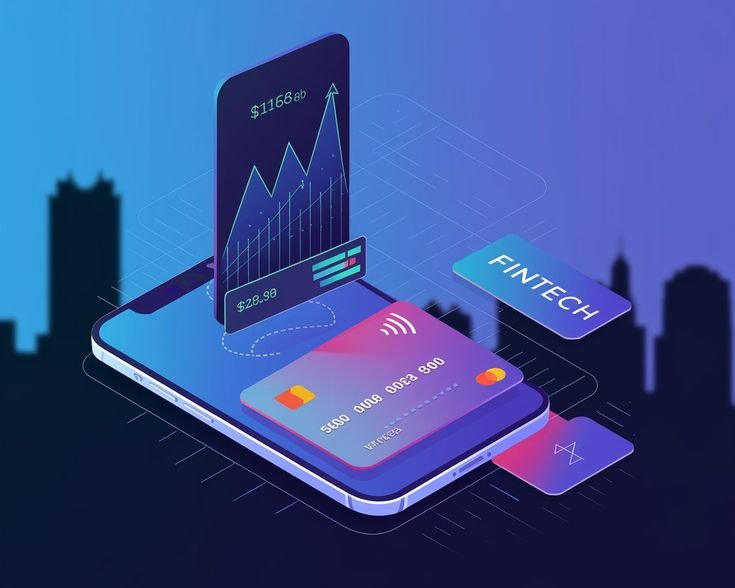Top Fintech Trends 2025: Technology Transforming Finance
The financial sector is evolving at an unprecedented pace, with technology leading the charge. Fintech, a fusion of finance and technology, continues to reshape how businesses and consumers interact with money. As we step into 2025, it’s clear that innovation in this space is far from slowing down. This guide explores the Top Fintech Trends 2025: Technology Transforming Finance, unveiling advancements shaping a smarter, more inclusive financial future.
1. The Rise of Decentralized Finance (DeFi)
Decentralized finance is becoming an integral part of the financial ecosystem. By eliminating intermediaries like banks, DeFi offers individuals direct access to financial services such as lending, borrowing, and investing through blockchain technology.
- Key Development: Smart contracts on blockchain platforms, such as Ethereum and Solana, are making financial transactions faster, more secure, and transparent.
- Impact: DeFi has democratized finance, opening doors to underserved populations in regions where traditional banking services are limited. Experts predict a surge in decentralized platforms offering competitive alternatives to conventional banking products.
2. AI and Machine Learning in Financial Services
Artificial intelligence (AI) and machine learning (ML) are pivotal in enhancing operational efficiency, fraud detection, and customer personalization in the financial sector. These technologies empower institutions to process massive data sets and predict consumer behavior more accurately.
- AI-driven chatbots are replacing traditional customer service, providing round-the-clock support.
- Predictive analytics help financial advisers recommend personalized investment strategies based on historical trends and real-time market data.
- Fraud prevention systems now detect anomalies in user transactions with razor-sharp accuracy, considerably reducing financial crime.
This automation not only cuts costs but also improves overall customer experience by delivering faster, more tailored services.
3. Embedded Finance is Everywhere
Embedded finance is set to become more prominent in 2025. This trend integrates financial services into non-financial platforms and applications, allowing customers to access them seamlessly.
- Examples of Embedded Finance:
-
- E-commerce platforms enabling instant credit or pay-later options.
- Ride-hailing apps offering in-app wallets for hassle-free transactions.
By embedding financial tools where consumers already spend their time, brands ensure frictionless interactions, boosting customer loyalty.
4. Open Banking to Accelerate Collaboration
Open banking is fostering innovation by mandating banks to share financial data with third-party providers (with customer consent). This collaboration enables startups and fintech firms to develop smarter, customer-centric services.
- Upcoming Regulations: Countries like the U.K., Canada, and India are pushing forward with stricter open banking frameworks.
- Customer Benefits: Streamlined applications for loans, aggregation of financial accounts, and customized savings plans are just a few of the features driven by open data-sharing.
This move is leveling the playing field between established financial institutions and rising fintech players, amplifying competition and innovation.
5. Blockchain Beyond Cryptocurrency
Blockchain technology’s influence extends far beyond cryptocurrencies. Its secure, distributed ledger system is now being applied to areas such as trade settlements, identity verification, and supply chain finance.
- Key Applications:
-
- Smart contracts are helping streamline back-end operations for mutual funds and insurance claims.
- Central banks in multiple countries are experimenting with Central Bank Digital Currencies (CBDCs) built on blockchain infrastructure to ease interbank payments.
Blockchain technology is cementing its role as a backbone of secure, transparent financial operations.
6. Regtech Takes Center Stage
Regtech, or regulatory technology, aims to simplify compliance with financial regulations through digital tools. Given the complexity and scale of global financial systems, regtech offers essential solutions for managing risks and ensuring regulatory compliance.
- 2025 Trends in Regtech:
-
- AI-powered surveillance tools monitoring transaction patterns to catch suspicious activities.
- Automated reporting solutions simplifying documentation for audits and legal checks.
These advancements ease the heavy burden of regulation on companies while improving accuracy and accountability.
7. The Digital Payments Revolution
Although digital payments are not new, 2025 marks a new milestone in ease, speed, and accessibility. Innovations include biometric payments, decentralized payment gateways, and seamless cross-border transactions.
- Cryptocurrency Integration: Using digital currencies in everyday payments is becoming increasingly commonplace, as more merchants and online platforms adopt crypto-friendly systems.
- Real-Time Cross-Border Payments: SWIFT and blockchain-based systems are significantly cutting down the time and cost required to transact internationally.
With convenience prioritized, consumers are rapidly shifting from cash-based transactions to secure, instantaneous digital payment options.
8. Cybersecurity and Data Privacy Dominate Conversations
As fintech expands, so does the attention on cybersecurity and data privacy. More digital platforms mean increasing vulnerabilities to potential cyberattacks.
- Biometrics-driven security solutions, including facial recognition and fingerprint scanning, are being widely adopted to mitigate risks.
- Data encryption and zero-trust architecture are setting new industry standards for privacy and resilience.
Financial institutions are prioritizing robust security frameworks to ensure confidence and trust from their users.
9. Sustainability in Fintech
Environmental, Social, and Governance (ESG) considerations are now a focal point in fintech developments. Sustainability-focused financial products are gaining traction as more consumers and businesses commit to eco-friendly practices.
- Examples:
-
- Green financing initiatives helping renewable energy projects.
- Carbon-tracking apps allowing individuals and companies to monitor and reduce their carbon footprints.
Sustainable fintech solutions play a dual role of driving profits while making a positive environmental impact.
10. Insurtech is Transforming Insurance
Insurance technology—or insurtech—is not to be overlooked. This specialization is modernizing how individuals and businesses access and manage insurance services.
- Usage-based insurance models, enabled by IoT devices, calculate premiums based on real-time behavior. For instance, safe driving habits could lead to lower auto insurance costs.
- AI simplifies underwriting processes and enables quicker claim resolutions, reducing the paperwork and downtime traditionally associated with insurance.
Insurtech is creating convenience on an unprecedented scale, redefining customer satisfaction in insurance services.
Wrapping Up
The Top Fintech Trends 2025: Technology Transforming Finance illuminate a future rich in innovation and opportunity. From decentralized finance and AI-driven tools to blockchain and sustainable banking practices, these advancements are reshaping the financial ecosystem. For businesses and consumers alike, keeping pace with these trends is essential to not only adapt but thrive in this digital-first era.
Emerging technology continues to propel the fintech space forward, breaking barriers and opening doors to new possibilities. Staying informed and agile will be critical as we step further into this dynamic landscape.











